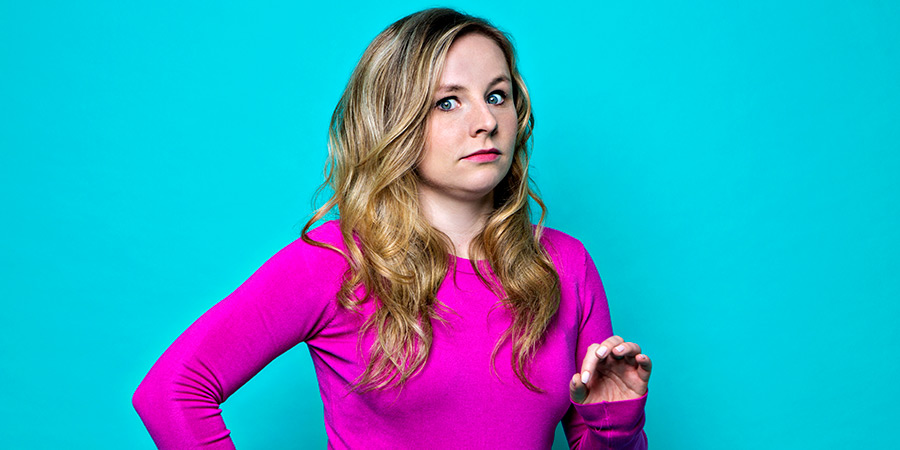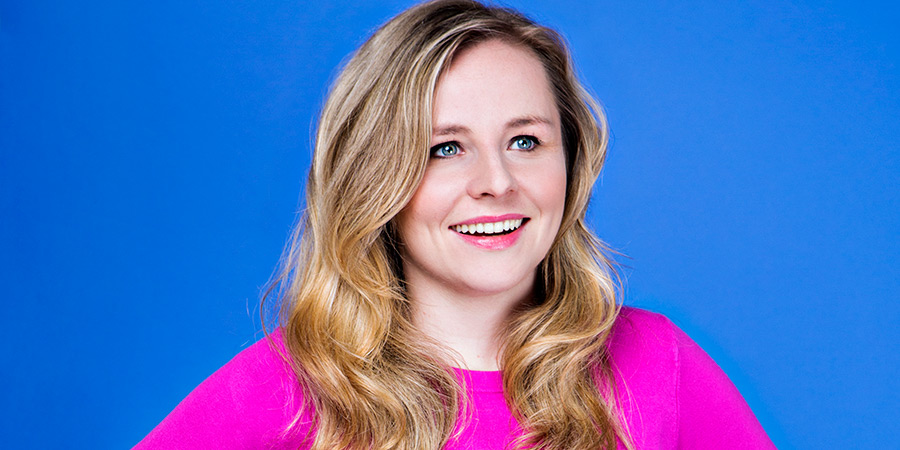Comedy and Dungeons and Dragons - the Perfect Combination

Comedian Sasha Ellen is hosting interactive roleplaying game show Character Building Experience at this year's Edinburgh Festival. Here she explains how and why the game Dungeons and Dragons appeals to comedians on many different levels.
Dungeons and Dragons, a game which has been around since the 1970s, has a reputation of being exclusively for lonely men with neck beards. D&D has evolved over 50 years but a huge shift has come in the last decade, with the release of the 5th edition of the game. A recent survey found that around 40% of D&D players identify as female; playing ages vary, and around 50 million people have played the game to date.
Dungeons and Dragons has been popularised by mainstream TV shows, such as Stranger Things and Community, and has a unique appeal to comedians, spawning shows and podcasts where comedians play D&D. But what is it that makes D&D and comedy such a great match?
Before we get into this, Dungeons and Dragons is just a game. It's a roleplaying game, which means that players take on characters and roll dice to see what their characters can achieve, while keeping all of their clothes on. I always feel I need to clarify that - not that I don't enjoy the knee-jerk reaction elicited by the words "dungeon" and "roleplay".
The game has a host or Gamemaster, known in D&D as a Dungeon Master, who takes the players through the story and plays all of the other characters in the adventure.

The game hinges on human interaction and takes place in the players imagination, which made it such a perfect lockdown hobby. D&D really came into its own during the pandemic because it was easy to play online and it was a bonding experience, which allowed people to feel connected to their friends. Unsurprisingly, Dungeons and Dragons saw a growth of 33% in sales in 2020. The element of escapism also played a large part in the game's rising popularity - who wants to be stuck at home, dodging flatmates or family like the plague, when you can be in a tavern dodging flaming arrows from drunk orcs?
While escapism is definitely a huge selling point, Dungeons and Dragons appeals to specifically comedians on many different levels. With the changes introduced in the 5th edition of the game, the focus shifted heavily towards storytelling and comics love a good story. The element of play, improv and inhabiting a character are also features that comedy and D&D share.
As strange as it feels to say this, failure plays a huge part in both. Comedy loves failure. Comedy is almost never about successful people smashing life. Imagine how boring that would be. We laugh at failure, we embrace it, we revel in it. And very few things in life deliver failure quite like a game where a dice makes all the important decisions.
Learning not to fear failure and knowing that it's an integral part of the adventure is a cornerstone that D&D and comedy have in common. Not to mention the freedom to make questionable choices with no real-life consequences for a cheap laugh.
When looking for comedian guests for my roleplaying game show, Character Building Experience, on at the Fringe this summer, I've stopped being surprised at how many random comedians reply with "Brilliant, I can resurrect Slappy McGee, my hill dwarf rogue with nothing to lose".
It is a truth universal acknowledged that every time a comedian has a good time they feel an irresistible urge to turn it into a podcast. The number of D&D podcasts is overwhelming. Dungeons and Dragons has inspired a myriad of different shows, from the hit stream Critical Role, on which the Netflix animated series Vox Machina is based, to web series Harmon Quest, a series who's more famous guest stars included Patton Oswalt, Aubrey Plaza and Chelsea Peretti.

For years now, the streaming platform Twitch has provided an easy-to-watch D&D. 4.3 billion minutes of D&D content has been viewed on the website, empirically proving that it is a game that is enjoyable to watch... or that nerds are masochists.
The two aren't mutually exclusive. Dungeons and Dragons is an intricate and time consuming game, where a typical session can last between three to six hours. Although there is definitely something magical to settling into a game you know will last the whole day and take you on a journey, making a live audience sit through that would be a hostage situation. Therefore, when adapting D&D for a live audience, the games tend to be shorter, the rules simpler and the content lighter.
Even though the games I run in Character Building Experience do not have anywhere near the depth or technical complexity of your average Dungeons and Dragons game, I know that having my comedian panelists get it wrong and mess with the format will make the audience so much happier than watching us in serious nerd-mode, furiously argue about rules, stats and the dangers of a gelatinous cube.
These days, caught somewhere between niche and trendy, it can't be denied that D&D's performative element, as well as the sense of community it inspires, lends itself neatly to comedy. Explaining the game and its bizarre reputation is still... interesting, and something I'm doing in my EdFringe stand-up show, Sasha Ellen: Creeps and Geeks, on at the Underbelly this August. The real challenge with anything intricate, like D&D or comedy, is making it accessible and inclusive, and when we rise to that challenge the results are joyful.
Help British comedy by becoming a BCG Supporter. Donate and join us in preserving, amplifying and investing in comedy of all forms, from the grass roots up. Advertising doesn't cover our costs, so every single donation matters and is put to good use. Thank you.
Love comedy? Find out more
